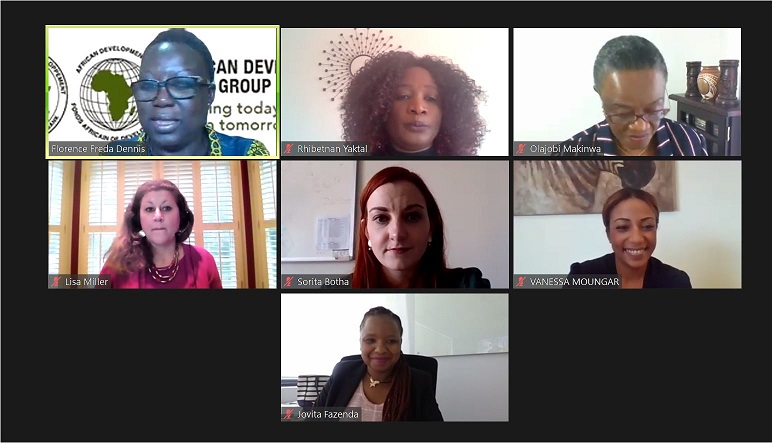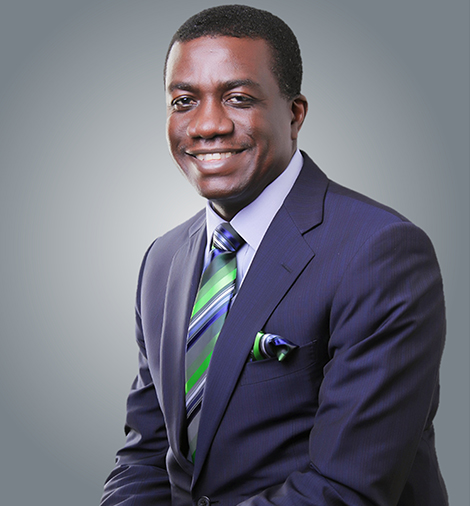Bank-supported network to address corruption, unethical behavior, avenues of support for leadership
The Women in Ethics and Compliance in Africa network, (WECA), a new initiative creating a membership group for women executives and management leading the fight against corruption and non-compliance in business, made its debut at an online webinar co-hosted by the Bank on October 22.
Its organisers, leaders from the African Development Bank, Coalition for Ethical Operations (CEO) and the United Nations Global Compact, announced the formation of the unique support organization for female leaders and executives working to curb unethical business practices in Africa.
“The formation of this network reiterates the Bank’s commitment to ensuring that sustainable development is hinged on bridging the gender gap, with emphasis on key areas such as ethics and compliance. We’re inviting women from all across the private and public sectors on the continent to join in and help in achieving the objectives of this network,” said the Bank’s Director for Gender, Women and Civil Society, Vanessa Moungar.
Sanda Ojiambo, Director-General of UN Global Compact, told the virtual audience of experienced ethics and compliance professionals that her organization supports WECA’s mission.
“The UN Global Compact is very much aligned with the objectives of the Women in Ethics and Compliance in Africa to advance coordinated ethical business practices, anti-corruption measures across the continent, and to empower a new generation of female leaders in the field,” Ojiambo said.
The webinar attendees discussed multiple challenges women leaders face in Africa’s male-dominated corporate world. The WECA network founding members said they plan to address the lack of avenues and support for ethical leadership. The network also aims to bridge the gap in human resources for ethics and compliance across the continent, through mentoring and coaching young women professionals for career progression. Some WECA network supporters said this starts from a young age.
“There is a need to create a global awareness and education to address the gender issue from a cultural perspective,” said Rhibetnan Yaktal. Global Head of Compliance at Puma Energy. To girls, her advice: “Build yourself up. There is no glass ceiling. There is no limit.”
The online gathering also explored how the COVID-19 pandemic has brought another dimension of challenges for ethical concerns for all leaders, especially women. Under the theme Women in Compliance in Africa: Challenges and Opportunities, Navigating in the era of COVID-19, webinar attendees told a panel that the compliance issue is very timely. Some noted that women play a significant role in the fight against the pandemic, which has forced major changes in how businesses operate and interact. Other participants said COVID-19 cannot be an excuse for businesses to ignore the ethical and integrity challenges faced in ensuring compliance systems are working and withstanding new and emerging risks.
“Women are uniquely well-positioned to deal with difficulties, challenges, and crises. For example, women leaders are better managing the current COVID-19 pandemic, yielding more results built on ethical leadership and strong integrity,” said Lisa Miller, Integrity Compliance Officer at the World Bank Group.
African public and private sector entities and civil society institutions are still lagging behind in ensuring the establishment and adherence to a culture of ethics and compliance in business, Olajobi Makinwa, Chief of Intergovernmental Relations and Africa for the United Nations Global Compact and founding member of WECA, said, emphasizing the network’s core mission. “WECA will support peer engagement, exchange of ideas and information on ethics and compliance best practices, dialogue on emerging ethics and compliance challenges, and champion women’s ethics and compliance leadership across the continent.”
The webinar also had a segment on women’s sexual harassment during which Paula Santos Da Costa, Head of Ethics Office at African Development Bank, said work was needed on a “speak-up culture,” and “to implement a zero-tolerance policy in the workplace.”
Moungar told online attendees that the Bank has zero tolerance for corruption and ensures that any vulnerabilities related to fraud and corruption are detected early and mitigated throughout its processes and programs.
Closing the webinar, Sorita Botha, Legal and Compliance Advisor at Distell, said, “I’m so excited about the launch of WECA, and I’m sure we will hear success stories from women in ethics and compliance in coming months and years. It is the beginning of a new era of women empowerment for critical roles in Africa.”










